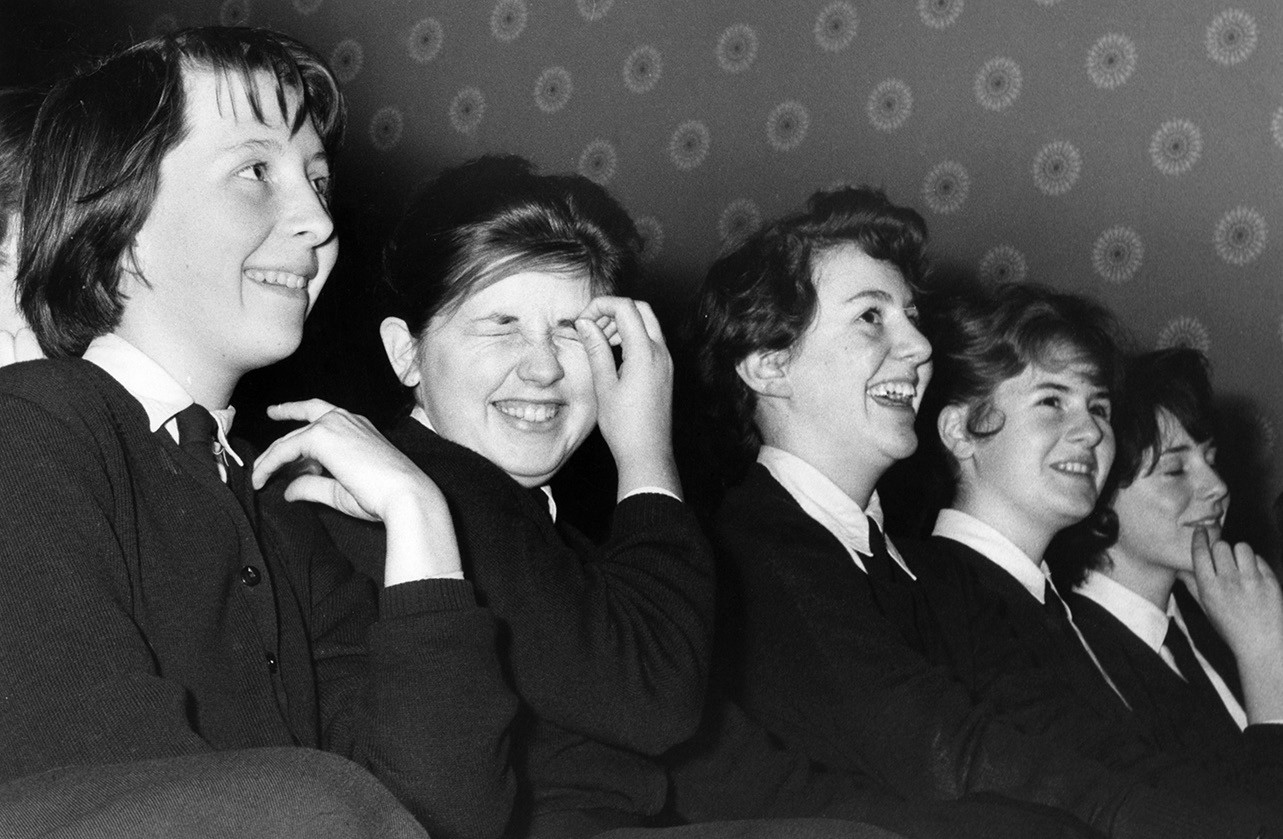
When reading Carol Ann Duffy’s Feminine Gospels, the unusual form of ‘The Laughter of Stafford Girls’ High’, that meaty chunk of text sandwiched between the tall tales and allegorical transformations that begin the collection and the elegiac personal lyrics that end it, is striking. Sometimes described as a mock-epic allegory of the rise of feminism, its word count exceeds that of many short stories, and when Duffy adapted it for BBC Radio 4 in 2004, critic Gillian Reynolds hailed it as ‘an excellent play but, even better, a brilliant radio experience…one of those very rare yet utterly unmistakable pieces you know will become a classic.’
When Stafford Girls’ High third former Carolann Clare passes a secret note to her schoolfriend, she kick-starts an epidemic of infectious laughter that the Head — ‘Queen Canute’ — is powerless to contain. Anarchy is in the air and the patriarchy is under pressure. Duffy (who attended the reallife Stafford Girls’ High School between the ages of 14 and 18) playfully inserts herself into the text as the cheeky Carolann Clare who heads up an alternative collective of female writers to oppose the ossified list of male Poets Laureate inflicted on the first years by English teacher Miss Nadimbaba. While ‘Emily Jane’ and ‘the poet Ursula Fleur’ channel Brontë, Fanthorpe and Adcock, Miss Nadimbaba is hamstrung by a curriculum that privileges rote learning over creative reading and writing.
Your organisation does not have access to this article.
Sign up today to give your students the edge they need to achieve their best grades with subject expertise
Subscribe




